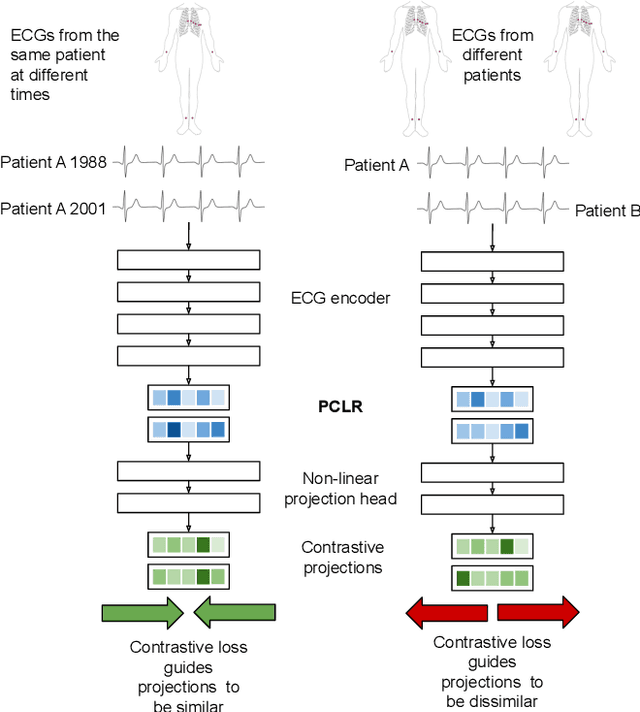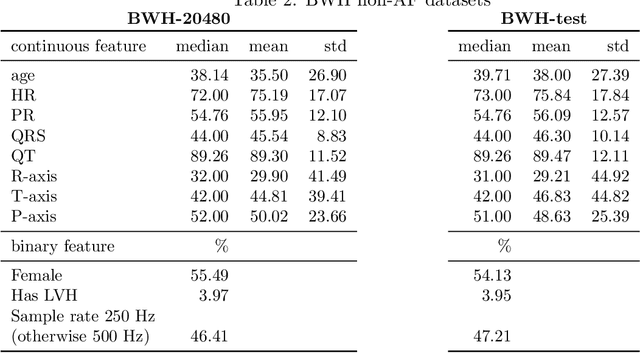Collin Stultz
Event-Based Contrastive Learning for Medical Time Series
Dec 16, 2023



Abstract:In clinical practice, one often needs to identify whether a patient is at high risk of adverse outcomes after some key medical event; e.g., the short-term risk of death after an admission for heart failure. This task, however, remains challenging due to the complexity, variability, and heterogeneity of longitudinal medical data, especially for individuals suffering from chronic diseases like heart failure. In this paper, we introduce Event-Based Contrastive Learning (EBCL) - a method for learning embeddings of heterogeneous patient data that preserves temporal information before and after key index events. We demonstrate that EBCL produces models that yield better fine-tuning performance on critical downstream tasks including 30-day readmission, 1-year mortality, and 1-week length of stay relative to other representation learning methods that do not exploit temporal information surrounding key medical events.
Patient Contrastive Learning: a Performant, Expressive, and Practical Approach to ECG Modeling
Apr 09, 2021



Abstract:Supervised machine learning applications in health care are often limited due to a scarcity of labeled training data. To mitigate this effect of small sample size, we introduce a pre-training approach, Patient Contrastive Learning of Representations (PCLR), which creates latent representations of ECGs from a large number of unlabeled examples. The resulting representations are expressive, performant, and practical across a wide spectrum of clinical tasks. We develop PCLR using a large health care system with over 3.2 million 12-lead ECGs, and demonstrate substantial improvements across multiple new tasks when there are fewer than 5,000 labels. We release our model to extract ECG representations at https://github.com/broadinstitute/ml4h/tree/master/model_zoo/PCLR.
 Add to Chrome
Add to Chrome Add to Firefox
Add to Firefox Add to Edge
Add to Edge